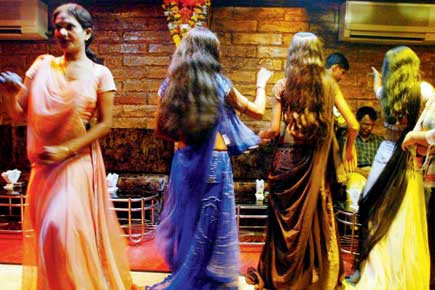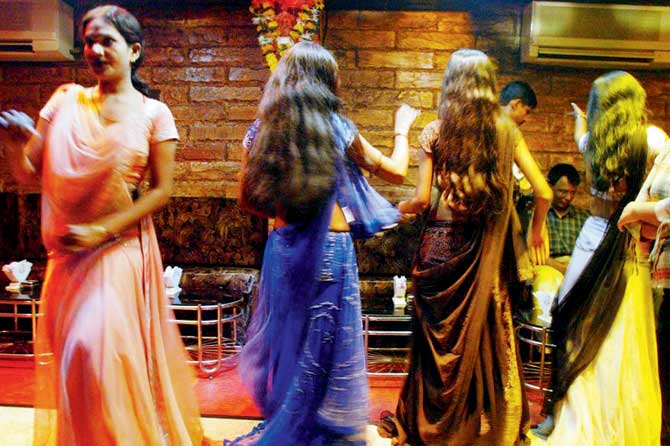The Supreme Court today agreed to hear on March 2 a fresh plea challenging the constitutional validity of a 2016 Maharashtra law putting conditions on dance performances by girls and women in bars and hotels of state


ADVERTISEMENT
New Delhi: The Supreme Court today agreed to hear on March 2 a fresh plea challenging the constitutional validity of a 2016 Maharashtra law putting conditions on dance performances by girls and women in bars and hotels of state.
"We will hear the petition on March 2 when other related matters are coming up," a bench comprising Justices Dipak Misra, A M Khanwilkar and Mohan M Shantanagoudar said.
The court is already hearing petitions, including one filed by the Indian Hotel and Restaurant Association (IHRA),
challenging the constitutional validity of certain provisions of the Maharashtra Prohibition of Obscene Dance in Hotels, Restaurants and Bar Rooms and Protection of Dignity of Women (Working therein) Act, 2016.
The fresh plea, filed by 'Bharatiya Bargirls Union', has termed the new Act as arbitrary and violative of their right to earn a livelihood through legitimate means.
It alleged that the new law stigmatised their profession and unreasonably interfered with free choice of expression through dramatic performances and the right of women to practice the occupation of self-expression through such dramatic performances.
The union alleged that the term 'obscene dance' in the Act has been deliberately kept vague to allow police to harass women performers.
"The act of tipping or giving gifts as a token of appreciation has been customary and an integral part of traditional dance culture. This decades-old practice is akin to those performing Mujra, Lavani (traditional Marathi song and dance) or Tamasha (traditional Marathi theatre) where performers earn their living through 'bakshisi' offered by the audience as a token of appreciation of the performances.
"The said practice is widely prevalent in Maharashtra and across the country. But the Act prohibits such practice
contrary to traditionally accepted form of custom, thus failing to recognise that every performance deserves a prize," the plea said.
On September 21 last year, the apex court had given interim relief to the state government by refusing to stay the
operation of the new law though it had flagged some of its provisions. It had also allowed some dance bars which were granted licences by the state administration to continue to function under old rules and the directions issued by it.
 Subscribe today by clicking the link and stay updated with the latest news!" Click here!
Subscribe today by clicking the link and stay updated with the latest news!" Click here!






